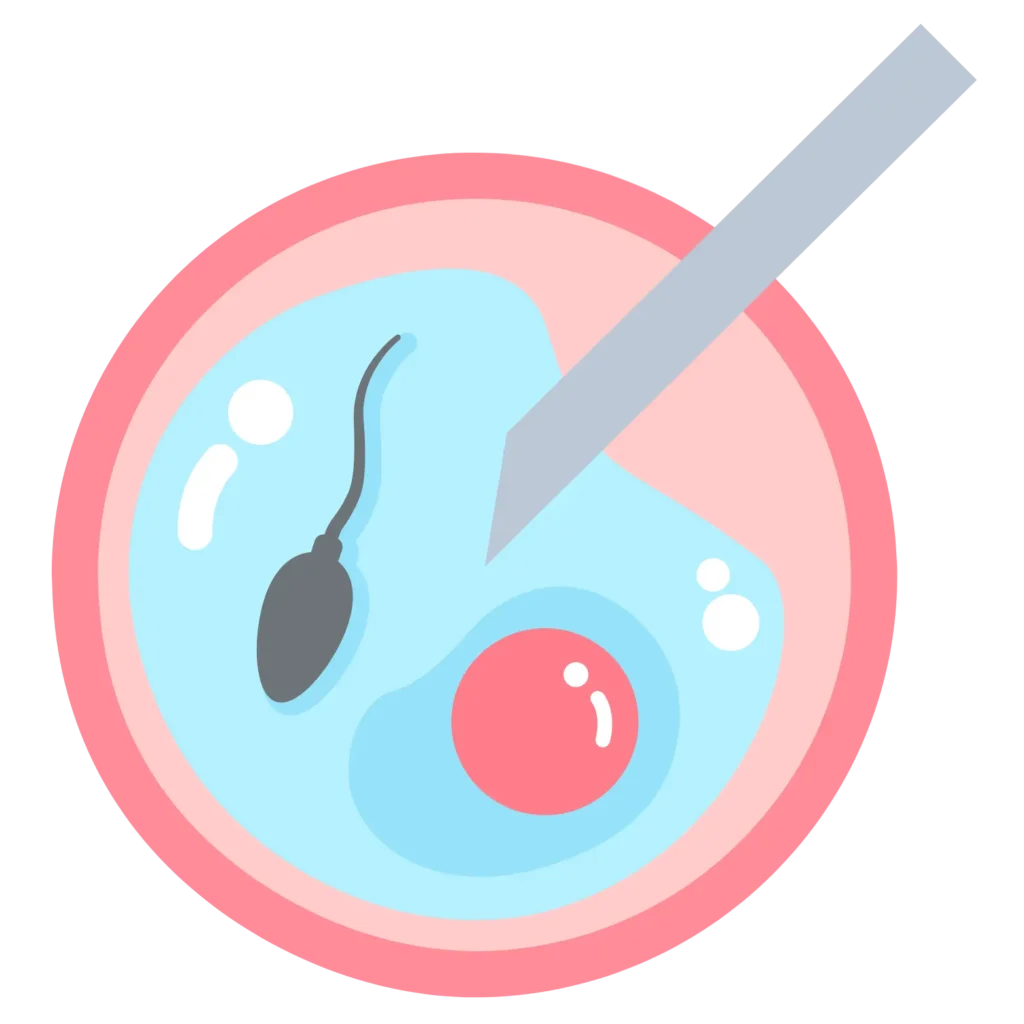Intracytoplasmic Sperm Injection (ICSI)
Home | Services | Intracytoplasmic Sperm Injection (ICSI)
What is intracytoplasmic sperm injection (ICSI) ?
Intracytoplasmic sperm injection is an infertility treatment procedure that is used during in vitro fertilization (IVF) where a single sperm is directly into the egg cytoplasm ( it is a gel-like substance in the center of an egg, made up of water, salt, and other molecules) for fertilization. During conventional IVF, the egg is placed in a cultured dish with many sperm and fertilization occurs, when one sperm penetrates the egg naturally. Your chances of having a successful pregnancy are the same with ICSI as with traditional IVF. It’s estimated that 50% to 80% of ICSI attempts result in fertilization.
Benefits of intracytoplasmic sperm injection (ICSI)
This procedure gives satisfactory fertilisation results to assist those are suffer from infertility, reproductive system diseases, genetic disorders, or those who have failed other IVF procedures. Intracytoplasmic sperm injection carries a comprehensive range of benefits.
- CSI increases the chances of fertilization when compared to other IVF procedures by allowing sperm to freely fertilize the eggs without having to penetrate the egg itself.
- ICSI reduces the risk of an inherited disorder passing down to the fetus, such as Down syndrome or thalassemia.
- ICSI allows men with low sperm counts, poor morphology, poor sperm quality, or infertility to have children.
- ICSI increases the chances of pregnancy for women over 35 who are infertile to have a better chance of becoming pregnant.
- ICSI enables couples who have undergone sterilization procedures, such as fallopian tubes or spermatic duct ligation, to have a successful pregnancy without sterilization reversal procedures
- ICSI allows couples to conceive and have children later in their lives when they are ready.

What are the risks of intracytoplasmic sperm injection?
ICSI is a procedure that is generally thought to have low related hazards. Icsi carries some risks and drawbacks of its own. As does every part of medicine. The male partner is not at high risk from the operation if the sperm has been obtained. The dangers of ICSI are minimal and related to the retrieval technique. ICSI risks include
Damage to the embryos
During the ICSI procedure, some eggs and embryos may sustain damage
Multiple pregnancies
Couples who combine ICSI and IVF have a 30%-40 % & higher risk of conceiving twins and a 5%-10% higher chance of conceiving triplets. She can experience various types of difficulties during pregnancy and childbirth such as high blood pressure, gestational diabetes, low amniotic fluid levels, early labor, or the necessity for a cesarean section, which increases when the mother is carrying multiples.
Birth defects
With the typical pregnancy, there is a 1.5% – 3% risk of a serious birth defect. Angelman syndrome, Beckwith-Wiedemann syndrome, sex chromosomal abnormalities, and hypospadias are a few congenital disorders linked to ICSI. There is a chance that infertility could be passed genetically.
Why choose Dr. Neelu Prasad?
At Neelu Prasad, we are one of the best Intracytoplasmic Sperm Injection (ICSI) centers in Patna. Dr. Neelu Prasad IVF center is the most trusted IVF for the couple, who are seeking affordable and effective treatment in Patna. This IVF is considered the best infertility treatment in Patna and is equipped with excellent facilities providing complete infertility solutions. Our expert team has huge experience with a decade of expertise in treating a spectrum of infertility conditions Specialists and nursing staff are dedicated to providing exceptional treatment to our patients, who place their valuable trust in us to help fulfill their dream of building a family.
The infertility treatment, including Intracytoplasmic Sperm Injection (ICSI), at Dr. Neelu Prasad’s clinic offers an all-encompassing experience. We work tirelessly to provide the best fertility care that medical science offers while hand-holding our dear patients through the entire process.
